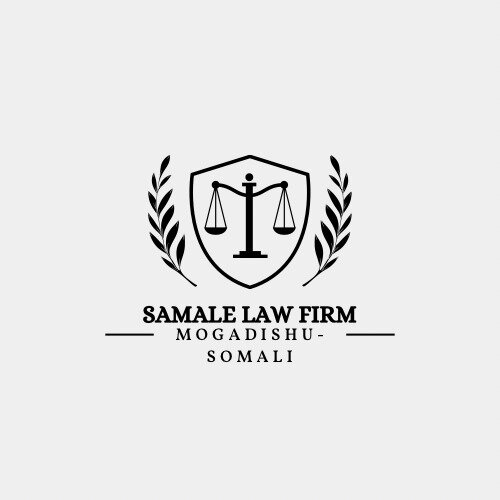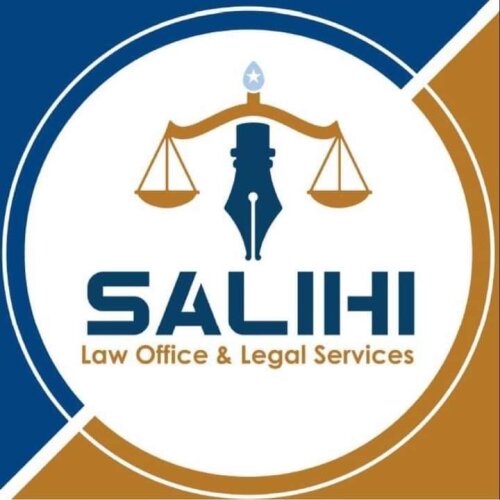Best Water Law Lawyers in Mogadishu
Share your needs with us, get contacted by law firms.
Free. Takes 2 min.
List of the best lawyers in Mogadishu, Somalia
About Water Law in Mogadishu, Somalia
Water Law in Mogadishu, Somalia, governs the use, management, distribution, and protection of water resources within the city and the wider region. Given the country's arid and semi-arid climate, water is a critical and sometimes scarce resource. Laws around its usage, rights, and access are essential for agricultural, domestic, and industrial needs. Water Law in Mogadishu is shaped by a blend of national legislation, customary law, and Islamic principles, reflecting the importance of equitable water sharing, environmental protection, and public health.
Why You May Need a Lawyer
Several situations may require the expertise of a Water Law lawyer in Mogadishu. If you are involved in disputes over water access or usage rights, require permits for drilling wells or extracting groundwater, or face regulatory issues regarding water pollution and waste management, you would benefit from professional legal help. Non-governmental organizations, businesses, and individuals all may require guidance on water rights, environmental compliance, or government licensing. Additionally, land development or infrastructure projects near rivers or water bodies often involve complex regulatory requirements where legal advice is crucial.
Local Laws Overview
In Mogadishu, Water Law is influenced by national policies, regional regulations, and community traditions. Key aspects include the allocation of water resources among users, restrictions on pollution and contamination, and the regulation of wells and surface water extraction. Customary law typically emphasizes collective responsibility for fair distribution, especially in rural or peri-urban settings, while statutory law addresses licensing, resource management, illegal water connections, and penalties for misuse. The Ministry of Water and Energy, along with municipal authorities, oversees much of the regulatory framework, aiming to balance population growth, sustainability, and resource protection.
Frequently Asked Questions
What are the main sources of water law in Mogadishu?
Water Law in Mogadishu derives from national statutes, municipal regulations, Islamic Law, and customary practices observed in local communities.
Who is responsible for water regulation in Mogadishu?
The Ministry of Water and Energy is the primary governmental authority, working in coordination with municipal agencies and public health departments.
Do I need a permit to drill a well in Mogadishu?
Yes, permits are often required by local authorities to ensure responsible groundwater extraction and to prevent overuse.
How are water disputes usually resolved?
Disputes may be addressed through local councils, customary mediation practices, or by bringing the matter before civil courts, depending on the parties and the issue.
Is water considered private or public property?
Generally, water resources are regarded as a public resource, managed for the benefit of all, though access rights may exist for private landowners under certain conditions.
Are there restrictions on water usage for agriculture?
Yes, there may be limits on the amount of water withdrawn for agricultural use, as well as requirements to avoid water waste or pollution.
What penalties exist for illegal water use?
Penalties range from fines and license revocation to criminal charges for severe offenses such as tampering with water infrastructure or polluting public supplies.
Can businesses obtain water access for industrial use?
Businesses can apply for water permits or licenses, but must comply with regulations regarding sustainable use and pollution control.
How does customary law interact with statutory Water Law?
Customary law often guides everyday practice, particularly around equitable sharing and conflict resolution, but statutory law prevails in formal licensing and regulatory matters.
What should I do if I suspect water contamination?
Report the issue to municipal water authorities or the public health department for investigation, and seek legal guidance if harm or rights violations have occurred.
Additional Resources
- Ministry of Water and Energy, Somalia: Oversees water management, licensing, and resources protection. - Mogadishu Municipal Water Authority: Handles city-specific regulations and supply. - Somali Environmental Protection Agency: Provides information on environmental safeguards relating to water. - Legal Aid organizations: Offer guidance and representation in water-related legal matters. - Community Elders and Religious Leaders: Important sources for customary dispute resolution in water matters.
Next Steps
If you require legal assistance in Water Law, begin by clearly documenting your situation, including any communications or evidence. Contact a qualified Water Law attorney or a legal aid organization experienced in Somali environmental regulations. You may also consult government bodies such as the Ministry of Water and Energy for information or to initiate permit processes. Where customary or communal issues are involved, seek guidance from local elders or religious leaders in addition to formal legal channels. Taking prompt, informed action can help you protect your rights and ensure compliance with local water laws.
Lawzana helps you find the best lawyers and law firms in Mogadishu through a curated and pre-screened list of qualified legal professionals. Our platform offers rankings and detailed profiles of attorneys and law firms, allowing you to compare based on practice areas, including Water Law, experience, and client feedback.
Each profile includes a description of the firm's areas of practice, client reviews, team members and partners, year of establishment, spoken languages, office locations, contact information, social media presence, and any published articles or resources. Most firms on our platform speak English and are experienced in both local and international legal matters.
Get a quote from top-rated law firms in Mogadishu, Somalia — quickly, securely, and without unnecessary hassle.
Disclaimer:
The information provided on this page is for general informational purposes only and does not constitute legal advice. While we strive to ensure the accuracy and relevance of the content, legal information may change over time, and interpretations of the law can vary. You should always consult with a qualified legal professional for advice specific to your situation.
We disclaim all liability for actions taken or not taken based on the content of this page. If you believe any information is incorrect or outdated, please contact us, and we will review and update it where appropriate.










